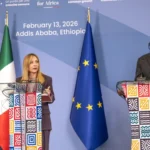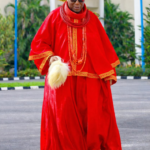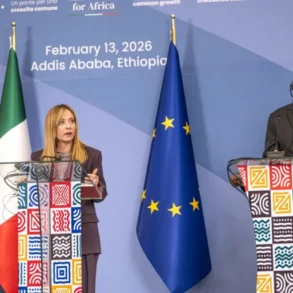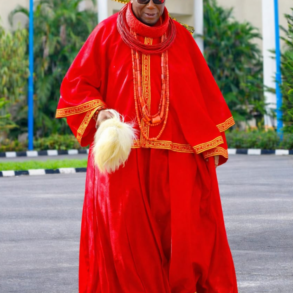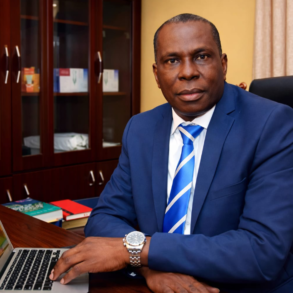The public collapse of the marriage between Senator Ned Munir Nwoko and Nollywood actress Regina Daniels has evolved into one of the most troubling political-personal scandals in recent Nigerian history. It is one so layered with conflicting claims, leaked documents, power imbalances, alleged intimidation, and questionable conduct that it now raises pressing questions about the integrity of a sitting lawmaker. It is no longer a mere celebrity story. It is a red-flag case study of what can emerge when political power intersects with domestic life in dangerous ways, and why the institutions meant to check that power must now step forward.
What first appeared to be a glamorous, has unraveled into an alarming saga that exposes gaps in Nigeria’s political ethics, law enforcement oversight, and the protection of vulnerable individuals, even when they are famous. Beneath the noise of gossip, the contradictions in official statements and the troubling conduct within Ned Nwoko’s household reveal a pattern of behavior that should concern not just Regina Daniels’ supporters, but citizens of Delta North, anti-corruption bodies, women’s rights groups, and every Nigerian who expects accountability from public officials.
At the center of this storm lies the senator himself, whose actions, statements, and alleged use of influence have become increasingly difficult to ignore. It is not merely the existence of accusations that demands attention, it is the nature of those accusations, the timing of his explanations, the inconsistencies within them, and the possibility that a powerful lawmaker may have used his influence to shape narratives, intimidate critics, or protect himself as the crisis deepened.
One of the earliest red flags emerged from the long-standing controversy surrounding Regina Daniels’ age at the time of their marriage. For years, Nigerians have questioned her true date of birth, claiming she was seventeen when Ned Nwoko married her. The senator has always maintained that Regina was older, insisting that her INEC voter registration card showed a birth date of October 10, 1998. Yet despite this claim, no publicly authenticated or independently verified birth certificate has ever been produced to corroborate the senator’s narrative. The absence of such documentation is extraordinary. For a marriage that came under intense scrutiny from the moment it became public, one would expect clear, verifiable records to be readily shared to silence the controversy.
But they were not. Instead, Nigerians were left with conflicting narratives and unverifiable claims suggesting an environment in which suspicion thrives. And when suspicion arises around the actions of an ordinary man, it is one thing; when it surrounds a senator and federal executive figure, it becomes a matter of public concern.
The controversy might have remained a dormant curiosity had the marriage not imploded in the most public and chaotic fashion possible. The tipping point came when allegations of substance abuse began circulating; allegations not from random bloggers, but from Senator Nwoko himself. He accused Regina Daniels of a history of drug and alcohol misuse predating their marriage, claimed he had attempted to enroll her in rehabilitation programs, and suggested she was surrounded by enablers who fed her alleged addiction.
At first glance, the senator’s narrative appeared to be a concerned husband’s lament. But the more closely one examines the sequence of events, the more suspicious the narrative becomes, particularly when viewed against the political power he wields, the personal stakes of a marriage in crisis, and the public relations damage he stood to suffer if the reasons for the marital collapse were attributed to his own conduct.
Then came the alleged Serenity Royale Hospital report. The document, which spread widely across social media, claimed that Regina tested positive for marijuana, cocaine, morphine, and high alcohol levels. It contained intimate medical details, behavioral observations, and recommendations for detoxification. For a moment, it seemed like the damning evidence that would bolster the senator’s claims.
But almost immediately, Serenity Royale Hospital publicly denied authoring or releasing the report. Their statement condemned the unauthorized circulation of confidential medical information and warned the public to disregard the document. This denial should have raised serious questions, not just about the legitimacy of the document, but about how such a sensitive report emerged, whose interest it served, and whether any influential party played a role in creating, leaking, or manipulating the narrative.
Upon deeper reflection, Nigerians began asking uncomfortable but necessary questions: Who stood to gain the most from a leaked medical report portraying Regina as unstable? Who had the resources, motivation, and reach to circulate such a document at the peak of a marital crisis? And why did the leak occur only after Regina accused the senator privately of violence and intimidation?
It is here that the story shifts from a messy domestic dispute into a matter of public accountability. When a powerful man’s version of events is contradicted by institutional statements, the obligation to investigate becomes urgent. If a senator can benefit from the sudden appearance of a medical report later denied by the institution it allegedly originated from, what does that say about the potential misuse of power behind the scenes?
Human rights activist Omoyele Sowore amplified these concerns when he accused Nwoko of using his political influence to harass and intimidate Regina’s family members. Sowore alleged that the senator may have manipulated law enforcement bodies, including the Nigeria Police Force and possibly the NDLEA, to create or amplify the drug-related narrative that positioned Regina as the problem while shielding himself from scrutiny.
These are serious claims, not mere rumors and they deserve a full, transparent investigation. If true, they point to a dangerous precedent in which wealthy political elites can weaponize state institutions to manage their personal scandals. Even if untrue, the mere possibility that such manipulation could occur under the watch of a sitting senator should be enough for the National Assembly and law enforcement oversight bodies to open a formal inquiry.
Further complicating the story are the multiple accounts emerging from Regina Daniels’ side of the conflict. She has acknowledged past experimentation with substances, but she contests the severity described by Nwoko. More importantly, she alleges domestic violence, emotional abuse, and deliberate attempts to isolate her from her family and support system. These allegations, though insufficiently amplified in mainstream political discourse, form an essential part of the narrative because they paint a picture of a power imbalance that may have allowed deeper forms of manipulation to occur unnoticed for years.
It is critical here to remember that domestic violence often thrives in environments where one partner wields significantly more power than the other, power in wealth, influence, access, public perception, and institutional connections. And in this case, the imbalance could not be more pronounced: a young actress whose life and career were shaped under the spotlight, married to a billionaire politician with a long history of political maneuvering and legal battles.
Every allegation becomes heavier under this context. Every contradiction in the senator’s statements becomes more troubling. Every unexplained document leak becomes more suspicious. And every unanswered question becomes more intolerable.
One particularly disturbing dimension of the scandal is the senator’s tendency to frame every criticism as part of a coordinated attack against him. He has repeatedly claimed that there is a “pull-down-Ned syndicate” targeting him, that political enemies are weaponizing Regina’s condition, and that all accusations from land disputes to household issues are part of a grand conspiracy. While smear campaigns in politics are real, this blanket defense sounds increasingly like a reflexive shield rather than a serious explanation. It deflects responsibility, avoids direct answers, and raises more red flags than it resolves.
Moreover, the senator’s insistence that he married Regina “honorably” does not neutralize the unresolved questions surrounding her age or their power dynamics. Nor does it address the deeper issue: what happened behind closed doors under the roof of a man sworn to uphold the law, protect the vulnerable, and act with integrity?
To be clear, a marriage breaking down is not a crime. Substance abuse struggles, if real, are medical issues that require compassion, not political weaponization. But allegations of intimidation, misuse of law enforcement, contradictory medical narratives, emergence of two conflicting birth certificates, amongst others are matters of public interest when they involve a sitting senator. They warrant scrutiny not because of celebrity drama but because a lawmaker’s conduct must meet a higher standard of accountability than that of any ordinary citizen.
In this case, the standard appears far from met. The story of Ned Nwoko and Regina Daniels is no longer about two people whose marriage failed. It is about a powerful politician whose actions raise too many questions to ignore. It is about the possibility that state institutions may have been manipulated in a personal dispute. It is about a young woman whose vulnerabilities may have been exploited or exaggerated for political gain. It is about leaked documents, inconsistent explanations, and a senator whose public conduct increasingly clashes with the ethical expectations of his office.
For these reasons, Nigeria must not let this case fade into gossip. Civil society groups, women’s rights organizations, the National Assembly ethics committees, and independent investigative bodies must act. The allegations must be fully investigated openly, transparently, and without fear or favor.
Consequently, when a lawmaker is implicated in a scandal of this magnitude, ignoring it does not preserve stability, it corrodes public trust. And if Nigeria is to advance as a nation where no one is above the law, then this is precisely the kind of case in which accountability must be demonstrated.

